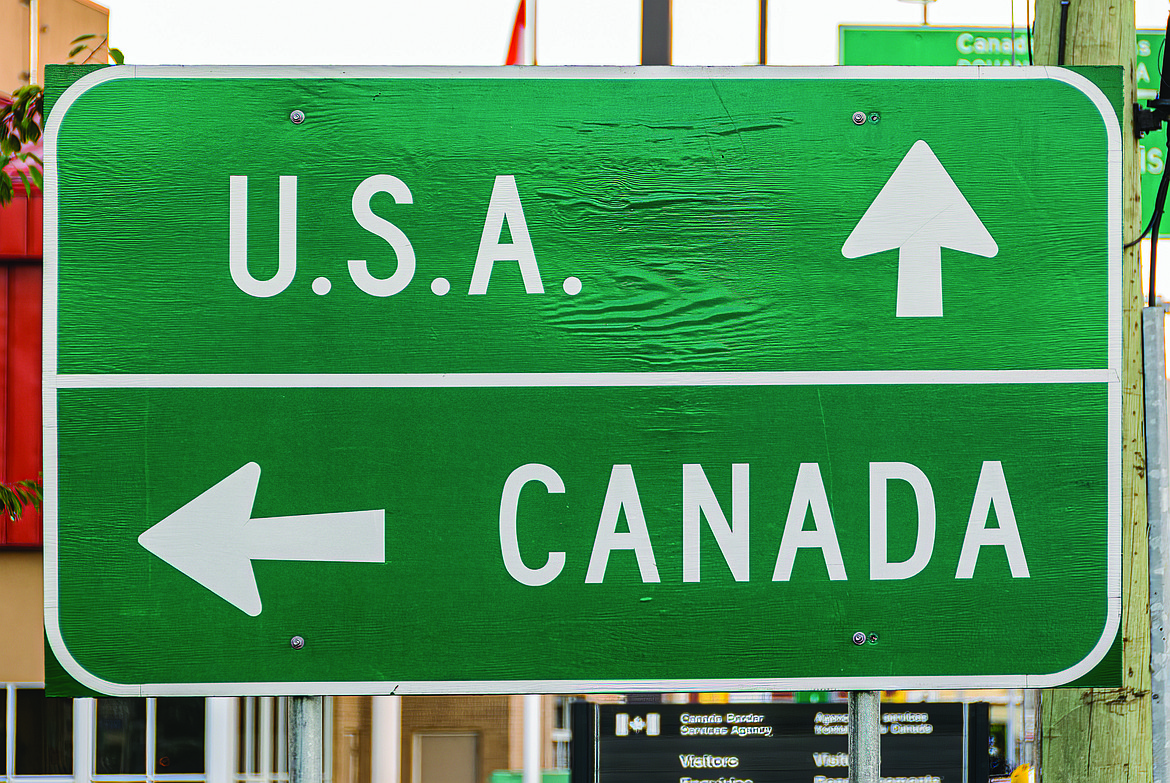Congressional delegation requests port of entry to return to pre-COVID hours
PORTHILL — Idaho’s congressional delegation is calling for the Porthill Port of Entry to return to pre-COVID-19 hours now that travel restrictions are being lifted in Canada and to encourage cross-border commerce.
The congressional delegation includes Senator Mike Crapo, Senator Jim Risch and Congressman Russ Fulcher of District 1 wrote a letter to the Commissioner of U.S. Customs & Border Protection on Oct. 20 to restore the hours of operation to pre-COVID-19 hours.
As of Oct. 1, all travelers entering Canada no longer have to provide proof of vaccination, COVID-19 pre-entry or arrival test, quarantine after entry, or use AriveCAN. Travel documents are still required, but pre-boarding tests for cruise passengers, health checks and wearing of masks on board planes and trains are no longer required.
Delegation members wrote the port of entry serves as a “vital economic, social and cultural passage” to North Idaho and the Canada provinces British Columbia and Alberta.
Currently, the Porthill Port of Entry is open 7 a.m. to 5 p.m. Before the pandemic, the port was open from 7 a.m. to 11 p.m. For almost three years, COVID-19 related restrictions hampered business, particularly those on or near the U.S border, the letter read.
The delegation wrote that the Boundary County, British Columbia and Alberta in Canada depend on the board crossing to ensure cross-border employment, trade and commerce can occur without interruption. They wrote that since Canada has removed all COVID-19 entry restrictions CBP should consider restoring the pre-pandemic operations for the port of entry to “ensure the regional economy can continue its recovery.”
They wrote that currently, due to border crossing operational hours, Canadians who work on the U.S. side of the border must end their work prematurely to return home. In addition, Canadian shoppers visiting North Idaho are discouraged from “fully engaging in commerce” and that companies that utilize resources from Canadian mills have had to reduce production.
Delegation members said that many Canadian and American companies in the region are small businesses and depend on the cross-border travel of employees and goods. They added that the reduced hours at Porthill have forced businesses to “drastically alter their business models” which has made it harder to operate in an already difficult economic climate.
For those in the Porthill area, there is not a viable border crossing for travelers as driving to Eastport adds 90 minutes to a round trip. The letter said the added travel time and fuel cost suppress recreational travel and is harmful to small businesses that drive North Idaho’s economy.
Boundary Community Hospital wrote Congressman Fulcher that the border crossing hours has made it impossible to employ Canadians further exacerbating the hospital's employee shortage. In addition, it has hindered Canadian patients from making their appointments and visiting loved ones in the hospital or the extended care facility.
The Kootenai Tribe of Idaho has also expressed concerns that the reduced hours will restrict meaningful access to their sister tribe, the Lower Kootenay Band, in British Columbia. The letter writers added that shorter hours of operations impose hardships on Tribal members planning and attending family events in addition to participating in cultural events that involve members on both sides of the border.
David Sims, director of the Boundary County Economic Council told the Bonners Ferry Herald that many smaller businesses have noticed the lack of returning Canadian regulars as it is impacting small businesses. The Eastport port of entry has maintained its 24/7 hours of operations during COVID-19.
The border crossing hours are clearly an impressing issue for Boundary County, he said.
Returning the operation hours to pre-pandemic hours is not something that can happen at the local level. That is why earlier in the summer, Sims reached out to Idaho's congressional delegation.
When discussing Boundary County and the neighboring Canadian provinces, Sims said many people do not realize how close these communities are culturally.
He added that restoring the operating hours is one area where policy change can restore a lack of commerce.
Sims added that he has been pleased with the congressional delegation and their interest in assisting Boundary County in restoring cross-border commerce and travel to pre-COVID levels.
Boundary County has two ports of entry in Canada. Eastport, on the east side of the county, is a trucking route with commerce that travels through Boundary County, while Porthill travel is mostly personal vehicles.
In 2019, Porthill had 119,133 personal vehicles and 3,922 trucks. Eastport has 93,835 personal vehicles and 55,036 trucks pass through.
Eastport port of entry operations returned to 24/7, while Porthill is still stuck at reduced hours.

